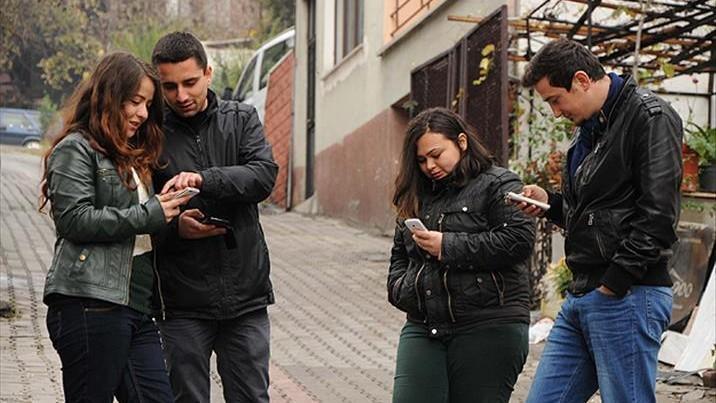
One in two high school students have been subjected to insults or offensive language on social media, a recent study by the Education Ministry has revealed, highlighting a concerning trend in digital spaces.
Officials conducted a study on the perception of digital violence last month with a total of 7,511 10th and 11th grade students from 26 of the country’s 81 provinces.
One of the study's most striking findings is that many students find themselves on both sides of digital violence both as victims and perpetrators — around 53 percent of students have been insulted or verbally attacked online, while 40.8 percent admit to engaging in similar behavior themselves.
The study also underscored the alarming rise of "exposure culture" among youth, with 11.1 percent of students reporting that their private information was shared without consent.
Accordingly, threats involving the release of private information or photos emerged as the most serious concern in digital space among students, with 92.3 percent of respondents classifying the act as a form of violence.
Other behaviors students labeled as violent included sharing screenshots of private posts with 73.5 percent, publicly shaming individuals for their opinions with 72.8 percent and criticizing past social media activity with 61.3 percent.
The survey also revealed that the digital world is where most of the high school students are most likely to encounter violence in their social lives.
Experts warn that exposure to negative interactions online, therefore, can lead to low self-esteem, social withdrawal, anxiety and even depression among teenagers.
“Adverse remarks, critiques and derogatory language on social media can seriously traumatize young people and lead them to lose confidence,” explained Hale Kahyaoğlu Çakmakcı, a psychology lecturer at Istanbul Atlas University.
According to Çakmakcı, young people may retreat into themselves, lose interest in school or develop unhealthy coping mechanisms as a result of negative actions imposed on them on social media, such as people not liking their posts or unfriending them.
In line with such concerns, these subtler digital interactions, such as deliberately not liking posts, withdrawing likes or excluding peers from online groups, are viewed as a form of violence by up to 20 percent of students.
In order to combat the growing issue of digital violence, the ministry emphasized the need to foster social and emotional competencies of young people and methodically bolster digital media control measures. Officials also highlighted the importance of collaborative efforts between families, universities, public enterprises and non-governmental organizations in this direction.